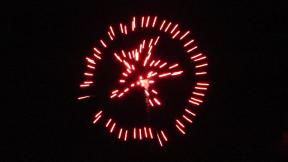
If there is any group of Americans that understands what Muslims have gone through post-9/11 in the United States, it's Japanese-Americans.
The parallels are striking: on December 7, 1941, Japan attacked the United States naval base Pearl Harbor in Hawaii. In response the US declared war on the country whose actions led to the deaths of over 2,400 Americans.
But as was the case with the 9/11 attacks, the response was not reserved to a war against Japan. Those of Japanese ancestry living in the United States were also affected. The American government, within two months of the bombing, issued Executive Order 9066. President Franklin D. Roosevelt signed this document on February 19, 1942, which authorized the internment of Japanese-Americans, who were now deemed enemies of the state. Over half of the 120,000 Japanese-Americans sent to the camps were born and raised in US and had never set foot in Japan. However, this made no difference. They were viewed with distrust and suspicion by not just the government, but their fellow Americans as well. Half of those sent to the camps were children.
The Order allowed for the forced exclusion of Japanese-Americans from certain areas to provide security against sabotage and espionage. These men, women and children lost their homes, businesses and property. Some died in the camps due to a lack of proper medical care. Others were killed for not obeying orders.
According to a 1943 report published by the War Relocation Authority, which ran the camps, Japanese Americans were housed in "tarpaper-covered barracks of simple frame construction without plumbing or cooking facilities of any kind." These overcrowded accommodations were bleak and surrounded by barbed wire. President Roosevelt himself called them "concentration camps."
Those who survived were eventually released. By 1945, all of the camps had been shut down.
Almost 40 years later, in 1981, the Commission on Wartime Relocation and Internment of Civilians (CWRIC) held a public hearing in Washington, D.C to investigate the internment of Japanese-Americans, where over 750 survivors provided testimony of their harrowing experiences in the camps. Two years later, the commission recommended financial compensation for each of the survivors. This became reality in 1988, when President Ronald Reagan passed the Civil Liberties Act of 1988 (H.R. 442) into law. Included in the preamble are the following words: “For these fundamental violations of the basic civil liberties and constitutional rights of these individuals of Japanese ancestry, the Congress apologizes on behalf of the Nation.” In 1993, President Bill Clinton also issued a formal letter of apology.
The first internment camp survivor to receive his check in 1990 was the 107-year-old Rev. Mamoru Eto of Los Angeles. Read more about Japanese American Internment at:
The Japanese American Citizens' League:
http://www.jacl.org/education_history.php
Children of the Camps Documentary
http://www.pbs.org/childofcamp/
Photo Attribution: http://commons.wikimedia.org/wiki/File:Internment.jpg




Add new comment